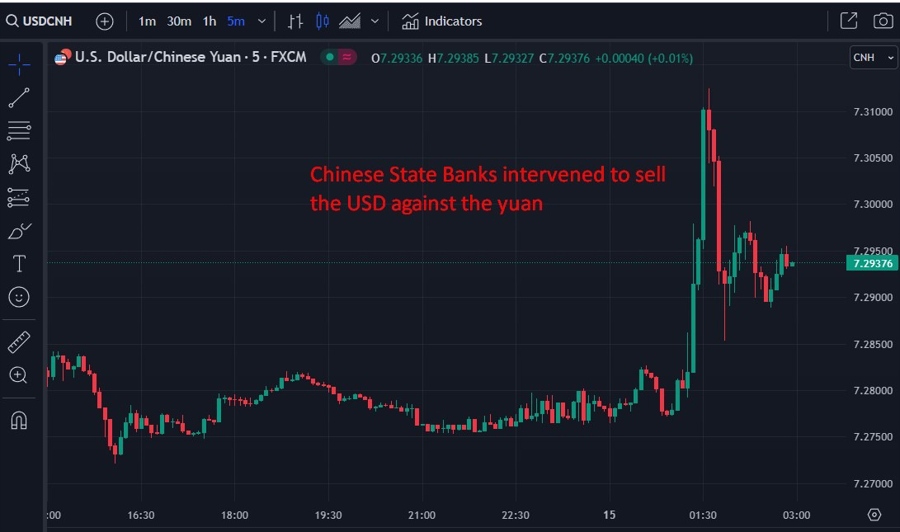
The
first event of note for the session was the very strong Japanese
economic growth data for Q2. Q2 preliminary GDP
came
in
much better than expected at 6% annualized, surging
past the 3% forecast
on strong net exports, led by auto shipments and inbound travellers.
On
the disappointing side though, domestic consumption
and business spending missed estimates. The
6% growth on a y/y basis was the fastest
pace since Q4 2020.
Also
in the figures were inflation indications. The Deflator is a measure
of inflation and it jumped to +3.4%, its highest since Q1 of way back
in 1981. As we’ve heard time and again from the Bank of Japan, they
expect inflation to be transitory. How much longer can they go on
saying this though?
USD/JPY
has not done a real lot on the session, tracking a narrow range, for
it, around 145.50.
While
the Japanese data was a surprise, there were more to come.
The
People’s Bank of China cut rates for the second time in three
months, lopping the Medium-term Lending Facility (MLF) rate to 2.5%
from its prior 2.65% and the reverse repo rate from 1.9% to 1.8%.
These cuts were soon followed by Chinese ‘economic activity’ data
for July, which came in at big misses for industrial output and
retail sales. The youth unemployment rate … well, no one knows,
Chinese authorities say they are no longer publishing this particular
data. This will not be because its improving.
USD/CNY
and USD/CNH both rocketed higher after the PBOC rate cuts. Chinese State Banks were seen in the market selling USD/yuan in
an intervention to prop up the local currency.
In
amongst all this were the minutes of the Reserve Bank of Australia
August meeting, when the Bank left the cash rate on hold. The RBA
struck a less hawkish tone than was expected. Also in the mix were
wages data for Q2 from Australia, which came in lower than expected.
The RBA will read this as taking some heat out of inflation pressure.
AUD/USD
was marked lower on this combination of Chinese rate cuts, a gentler
RBA, and the miss on wages. As I post, though, it has recovered all
lost ground and is just a touch higher on the session.
Elsewhere
FX ranges have also been subdued. Chinese mainland and Hong Kong
stocks are a little weaker.
Asian
equity markets:
-
Japan’s Nikkei 225 +0.8%
-
China’s Shanghai Composite -0.03%
-
Hong Kong’s Hang Seng -0.6%
-
South Korea’s KOSPI -0.8%
-
Australia’s S&P/ASX 200 +0.7%
